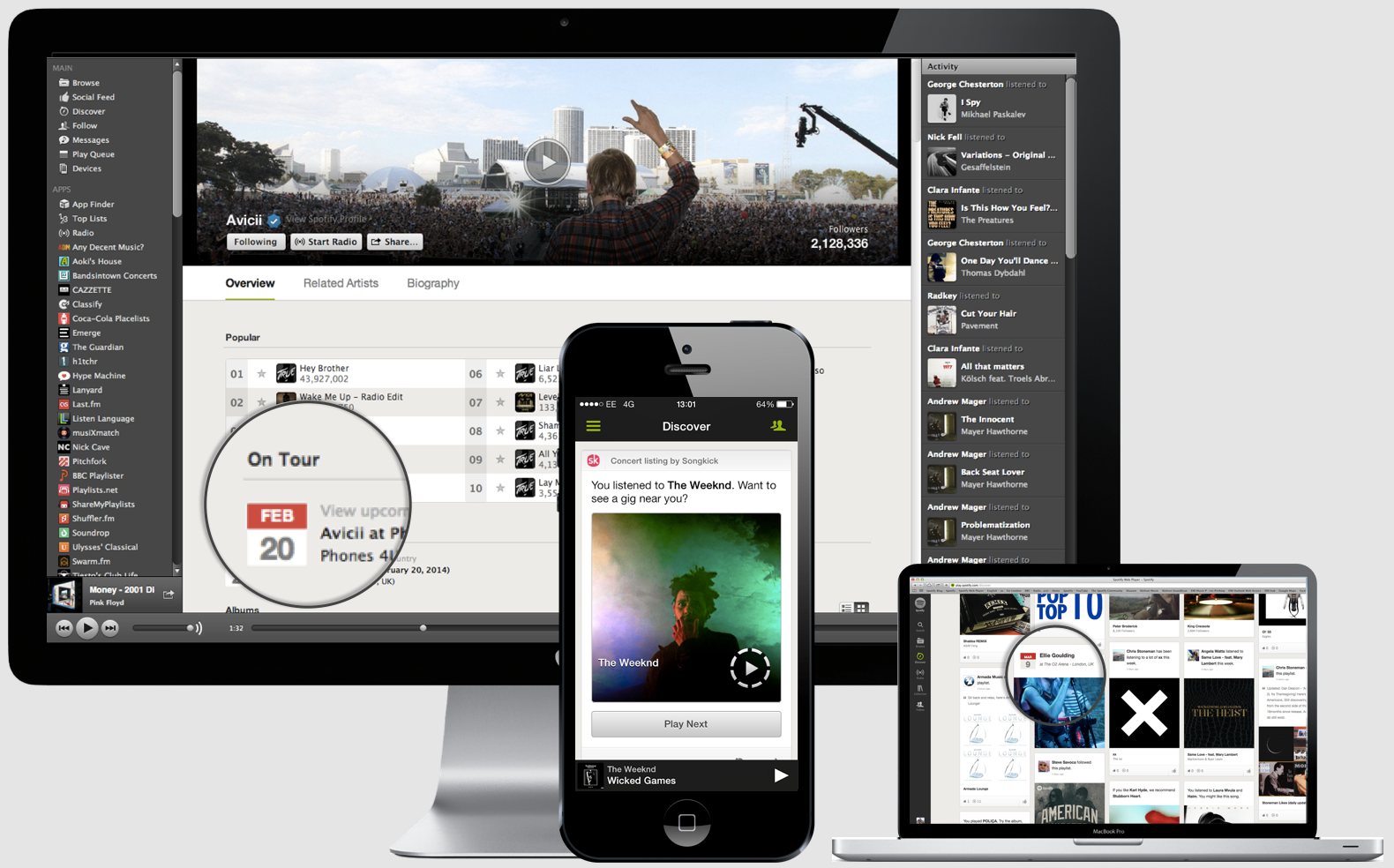Spotify has revealed that the amount of money paid to artists since the launch of the music streaming service in 2009 has now topped $1 billion (£610.23 million). And half of that amount, $500 million, was paid out in 2013 alone.
Even though the service has been criticised by some in the music industry in the past year - most notably by Thom Yorke, who removed his albums from Spotify - it claims that it pays out in royalties nearly 70 per cent of the money it makes from subscriptions. "We believe that this is the fair approach to take, and that as we grow we will become an increasingly significant contributor to artists' financial lives," the company said.
The Spotify artists management team also revealed that it will soon be adding the ability to buy merchandise through its applications. It has recently added the facility to buy concert tickets for favourite bands and musicians, and this next feature will give the opportunity for any artist on the platform a way to sell "merch" through the service which will link to their own merchandise stores. Spotify will be offering this function to artists for free.
This might not appease Yorke and other protesters as they argue that while Spotify works brilliantly for established artists, it is harder for new musicians to make money through the service. But the concert ticket and merch sections will add new ways for them to reap revenues, even if their tracks are not getting as many users listening to them as other, more famous names.
In a statement sent to Pocket-lint, Mark Williamson, director of artist services, explained that the addition of the new features can help new artists greatly. "For new artists, getting fans to your shows is a huge step in developing the fan relationship and in driving important revenue," he said.
"Spotify is making it easier than ever for artists to get their music on Spotify, and to get discovered, and now with these tools to get fans to shows and drive additional revenue. It's amazing for artists and it's an awesome experience for fans."

